“As simple as it is appalling.” The Navalny debate highlights

On 22 April 2021 the Parliamentary Assembly of the Council of Europe (PACE) held an urgent debate on the arrest of Russian opposition politician Alexey Navalny, and the defiance of judgements of the European Court of Human Rights by its largest member, Russia.
All MPs except those from Russia and Armenia had a clear message: the continued incarceration of Navalny posed an imminent threat not only to his life, but also to the credibility of the Council of Europe and the preeminent human rights court in the world, the European Court of Human Rights (Strasbourg Court). Many of the statements made could not be clearer:
“The Assembly is more than a forum for political debate. We are a statutory body of the Council of Europe. We have a responsibility to defend the rights and values of this organization … If Navalny dies in prison, it will be as a result of the conscious action of the Russian authorities.” (JM)
“Whoever does not implement this ruling basically excludes himself from the Council of Europe, opens the door to leaving and, in the end, cannot stay in either.” (FS)
“The case at hand is as simple as it is appalling. The fundamental question is a single and straightforward one … Given all these facts, his imprisonment becomes even more arbitrary and vindictive.” (DK)
“[Human right] conventions that the Russian Federation repeatedly violates, over, and over again. Conventions that the Russian Federation apparently pays no attention to. They obviously do not seem to matter to them. They are words only to be played with.” (AE)
“Now we are here for the European Court of Human Rights to be able to work, to have judgements that are truly executed. I mean, what are we to do when a country spits in the face of the Court?” (OG)
“Therefore, this is not a domestic matter for Russia. It is our common human values that are imprisoned.” (JC)
“The allegation that the Russian courts are simply operating as a political arm of the Kremlin becomes a very real one.” (TL)
“Navalny’s case, his arrest and imprisonment is only one of many puzzles of a huge picture, a caricature of democracy in Russia.” (LA)
But what, following this diagnosis of what is at stake, should happen next? What does it mean to say that “all options are on the table” to ensure that Navalny is released and that judgements are implemented? Or that “there are possibilities” of action for the body responsible for the execution of all Strasbourg Court judgements, the Committee of Ministers of the Council of Europe, currently chaired by Germany?
- Introduction
- Debate: the “arrest and detention of Alexei Navalny”
- Jacques MAIRE
- Tiny KOX
- Frank SCHWABE
- Dimitrios KAIRIDIS
- Damien COTTIER
- Dmytro NATALUKHA
- Sergey FABRICHNYY
- Annicka ENGBLOM
- André GATTOLIN
- Oleksii GONCHARENKO
- Sergey KISLYAK
- Oleksandr MEREZHKO
- Jette CHRISTENSEN
- Ingjerd SCHOU
- Fiona O’LOUGHLIN
- Naira ZOHRABYAN
- Tony LLOYD
- Sergiy VLASENKO
- Andreas NICK
- Laima Liucija ANDRIKIENĖ
- What next?
- The Article 46 Merry-go-Round
- The only tool left: Article 8
Alexei Navalny was arrested and detained on 17 January 2021 for having breached the terms of a suspended sentence passed in the so-called Yves Rocher case. In October 2017, the European Court of Human Rights in Strasbourg had ruled that Navalny’s conviction for fraud in the Yves Rocher case in 2014 violated his right to a fair trial and called for the domestic courts to remedy these violations. In April 2018, the Russian Supreme Court reopened the case but maintained the verdict and guilty sentence. On 2 February 2021, a Moscow court lifted the suspension of Navalny’s prison sentence and ordered him to serve the remaining two years and eight month in a penal colony.
On 16 February 2021, the European Court of Human Rights granted an interim measure requiring the Russian authorities to release Navalny. It was rejected by the Russian authorities. In early March, the Committee of Ministers called for Navalny’s conviction to be quashed and for him to be released without delay. The Russian authorities refused.
On 19 April, a debate was scheduled by PACE to discuss a report and a resolution on Navalny, prepared by French MP Jacques Maire.[1] The report described in detail what had happened in recent weeks:
“On 2 February 2021, the Simonovskiy District Court of Moscow granted the FSIN’s application and sentenced Mr Navalny to two years and eight months imprisonment in a penal colony (the original three-and-a-half year sentence minus the period spent under house arrest). This District Court found that the ‘systematic avoidance by A.A. Navalny of fulfilment of the obligations imposed on him by the court sentence’ meant that, ‘in the light of A.A. Navalny’s attitude towards the obligations imposed on him for the duration of his probation period, the aims of punishment provided for in [the Federal Criminal Code] cannot be achieved by maintaining his suspended sentence, and the court therefore considers it necessary to revoke it.’ Furthermore, the District Court found that the judgment of the European Court ‘cannot be taken into account as [the European Court] did not state its opinion on the unlawfulness of the sentence, while the [Russian Supreme Court] saw no grounds to conclude that the court had incorrectly applied the law establishing the criminal nature of the acts, the liability to punishment and other criminal law consequences, and left the sentence of Zamoskvoretskiy District Court of the city of Moscow and the decision on appeal of the criminal affairs bench of Moscow Municipal Court unchanged.’
12. On 16 February 2021, the European Court granted an interim measure requiring the Russian government to release Mr Navalny with immediate effect. The Court explained that it ‘had regard to the nature and extent of risk to the applicant’s life, demonstrated prima facie for the purposes of applying the interim measure, and seen in the light of the overall circumstances of the applicant’s current detention.’ The Russian Ministry of Justice has not released Mr Navalny, arguing that the interim measure represented ‘blatant interference in the operation of a sovereign State’s judicial system’, that the principle of subsidiarity meant that the Court ‘cannot replace a national court of amend its ruling’, and that ‘interim measures are not mentioned at all in the Convention on Human Rights and States comply with them on their own goodwill.’”
The resolution called on “the Russian Federation … to release Mr Navalny immediately” and to “ensure an honest and impartial investigation into the possible poisoning of Mr Navalny by a Novichok-type chemical weapon and the involvement of the Russian authorities in this crime.”
It was a historic debate. Speaker after speaker raised fundamental issues about the future of Russia in the Council of Europe, the question of future enforcement of Court judgments and the destiny of the Council of Europe itself. The stakes in this debate and in the follow-up are high indeed.
Here is what was said, what it means, and what might follow next.
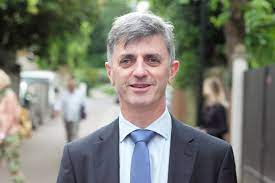
France, ALDE[2]
An essential debate
“Today’s debate is essential. It is essential, firstly, for Alexei Navalny, who is suffering alone in prison. The reports on his state of health are alarming. Allow me at this point to spare a thought for him, for his wife Yulia and for his children Daria and Zakhar.
The report is important for Russia because it goes to the heart of the pact that unites us with our Russian colleagues: respect for the European Convention on Human Rights.
The European Court of Human Rights has ruled that Navalny’s conviction is illegal and yet he is still in prison. This is despite the court’s adoption of a binding interim measure in February calling for his release. This is despite the request by the Committee of Ministers, responsible for supervising the enforcement of judgments, to quash his conviction and release him. And this despite the first appeal we made here in this Chamber at the January plenary session.”
More than a debating forum
“The Assembly is more than a forum for political debate. We are a statutory body of the Council of Europe. We have a responsibility to defend the rights and values of this organisation.”
No remedy
“The case is clear. The Court has handed down its judgment. Our position is therefore based on established facts and on its conclusions, which are unambiguous.
In 2014, Mr Navalny was sentenced in the so-called Yves Rocher case to a three-and-a-half year suspended prison sentence, with a five-year probationary period.
In 2017, the European Court found that this conviction and sentence violated the Convention. First, they violated its Article 7, which prohibits punishment without law. The Russian courts applied the Criminal Code in such an arbitrary manner that Mr Navalny would have been unable to foresee that his conduct would be considered criminal. They then violated Article 6 which imposes the right to a fair trial. The European Court has, therefore, ordered Russia to reopen the criminal proceedings to ensure that the domestic courts remedy the violations I have just indicated. And indeed, in 2018, the Russian Supreme Court reopened the proceedings. It did order financial compensation, but it upheld both the conviction and the sentence. It did not remedy anything.
The next episode takes us to January of this year: Mr Navalny returned to Russia after receiving medical treatment in Germany for possible poisoning. He was immediately arrested for allegedly failing to comply with the conditions of his parole. Two weeks later, a court sent him to prison for the remainder of his suspended sentence of two years and eight months.”
Mistreatment in prison
“According to the information that I received from the Russian Ministry of Justice, on 7 April, the prison doctors judged his health to be ‘generally satisfactory’. Then, on Monday, three days ago, he was transferred to a medical unit of the prison service, which confirmed his ‘satisfactory’ condition.
I’m not a doctor, but I find it amazing that a person with multiple herniated discs, spinal protrusions, who no longer has full use of his legs, who has respiratory problems, who has kidney dysfunction, who has lost more than 15 kilos, is in “satisfactory” condition … And when the only treatment given is vitamins, according to the Federal Prison Service, then something is wrong.
However, we learned yesterday from a statement by the Russian Ombudsman that Russia has made a different choice. Four doctors, who are not prison doctors but who were commissioned by the authorities, checked his health. They reportedly indicated that Navalny posed no medical risk and that he was receiving appropriate treatment. So if this is the case, why prevent him from seeing the doctor of his choice? I wanted to question this administration, even remotely. The question remains: the exchange was not possible.”
Fully responsible
“The authorities are therefore fully responsible. Mr Navalny must be released immediately. If he dies in prison, it will be as a result of the conscious action of the Russian authorities.”
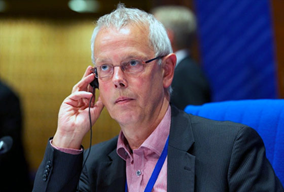
Netherlands, Spokesperson for the group UEL[3]
This is binding law
“Here we say the same thing as thousands of people yesterday said in the Russian Federation: free Alexei Navalny. Let him go. And not because he is a hero, not because he is a villain, not because he is something in between, it is because the highest court in Europe, the European Court of Human Rights in Strasbourg, said you have to release Mr Navalny, this is binding law and that is why the Group of the United Left supports the resolution presented by our colleague MAIRE.”
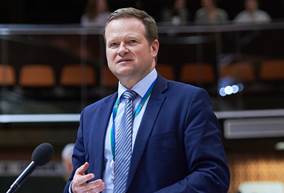
Germany, Spokesperson for the group SOC[4]
An existential question for this Council of Europe
“As Europeans, we have a common understanding of unbreakable human rights and, in doing so, we have relinquished a certain amount of sovereignty. We have all done that. We have relinquished sovereignty by allowing the European Court of Human Rights, rather than national courts, to make the final decision. That is precisely what the treaty says: that it is not the country that decides on the basis of goodwill or whether you think someone is good or bad, but that it is the European Court of Human Rights that decides and that we submit to that judgment in the end …
We must insist on this for our own sake, because if we were to let you get away with this, as far as Mr Alexei Navalny is concerned, then others would come and say, well, if it does not apply to Russia, then it does not apply to others either. That is why it is an existential question for this Council of Europe – and you must understand this – that the judgments are implemented.”
Excluding oneself from the Council
“… Mr Navalny is in great danger – from all we know, he is very ill. Therefore, there is a reason to release him very quickly and comprehensively. Whoever does not implement this ruling basically excludes himself from the Council of Europe, opens the door to leaving and, in the end, cannot stay in either. That is why: Let Mr Alexei Navalny go free, for the sake of one person, but also for the sake of 144, 145 million Russians.”
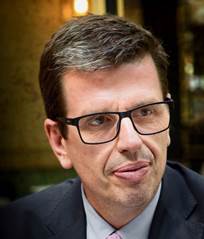
Greece, Spokesperson for the EPP/CD group[5]
As simple as it is appalling
We, at the European People’s Party Group, think that the answer cannot be but as simple as the question. We cannot and will not allow this kind of behaviour on the part of any state, let alone of a member State of our convention and our venerable institution …
Let me remind you all that Alexei Navalny is currently in a Russian prison for a criminal… for an original conviction that was overturned by the European Court of Human Rights in 2017. Recently, Navalny’s originally suspended sentence was turned into a prison sentence for failing to observe the terms of his parole. This decision of a Russian Court in February 2021 was also overturned by an urgent injection of the Court that requested his immediate release. Overall, there have been seven rulings of the Court in his favour since 2011 to no avail, while currently it seems that the very life of prisoner Navalny is at risk.”
Arbitrary and vindictive
“Alexei Navalny is accused of breaching the terms of his parole while lying in a coma in a German hospital after a near fatal attack against his life with a rare neuro agent Novichok. Furthermore, he is deemed in risk of escaping despite the fact that he voluntarily returned to Russia in January. Given all these facts, his imprisonment becomes even more arbitrary and vindictive. The Court has decided. We at EPP believe that the Court’s decisions are not negotiable and their implementation is not and cannot be a matter of national discretion.
Furthermore and consequently, the Committee of Ministers has decided on the full implementation of the Court’s decision. We at EPP believe that our Assembly should stand by the Court and the Committee of Ministers and ask for the immediate release of Alexei Navalny.”
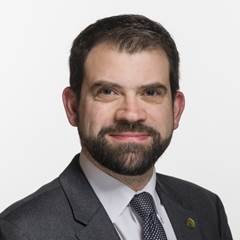
Switzerland, ALDE, Spokesperson for the group
We must act quickly
“Every country that has joined the Council of Europe has obliged itself to respect the European Convention on Human Rights and to implement the decisions of the Strasbourg Court. That applies to my country and to all our countries, dear colleagues. The German Presidency of the Committee of Ministers was right to point out this morning that we can discuss everything together, but not the implementation of the Court’s judgments.
This debate is important, finally, because we must act quickly. No government obviously wants to bear the responsibility for not having provided the necessary care to a man at risk, under its responsibility, all the less so when a binding decision has deemed his imprisonment illegal, as thousands of people reminded us again yesterday on the streets of Russian cities … what is expected of the Russian Federation is extremely important. It is urgent, but it is actually quite simple: it is a matter of allowing Mr Navalny to be assisted by a doctor of his choice, as Russian prison regulations seem to stipulate. It is also about releasing a man who the Court has ruled should be released.”
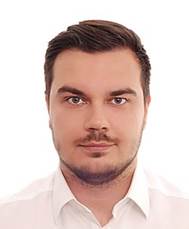
Ukraine, Spokesperson for the EC/DA group[6]
Navalny, Nemtsov, Politkovskaya
“There is a persistent feeling in the air that the time has come to finally start calling things by their proper names if this estimable institution wants to preserve its well-deserved status of one of Europe’s oldest largest, and one of the most influential organisations.
Navalny is just a personification of a much greater and longer issue that might be called by also such names as Nemtsov or Politkovskaya.
This issue is not just about Mr Navalny, it’s about constant and systematic violations of the Convention for the Protection of Human Rights and Fundamental Freedoms by the Russian Federation.”
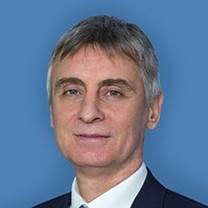
Russian Federation
“Now, Mr Jacques MAIRE, from one of the meetings of the Committee on Legal Affairs and Human Rights to another, I mean, he keeps coming up with new arguments and adding in new points and really removing us from the essence of what has happened. The essence is the following: Mr Navalny, in January of this year, was arrested because he had violated an order established by law. The law is very much in line with the German criminal code and it is the way in which social relations are regulated through the Nomos, the old Greek concept of law that establishes order in society. He therefore violated public and social order but also his personal duties under the law. It is normal for society to activate the mechanism required to return order. That is precisely what was done on 14 January.
Now, as I have stressed on a number of occasions at the meetings of the Committee on Legal Affairs and Human Rights that our country has ratified the European Convention of Human Rights, we have implemented that in our legal order. At the same time, we did not agree that there be a broad-ranging interpretation of certain acts taken domestically. Please take that into consideration.”

Sweden, EPP/CD
Words to be played with
“Outrageous, unacceptable. Unexpected? Unfortunately not. The illegal and heavily criticised arrest and detention of the Russian opposition leader Alexei Navalny along with violent arrests of thousands of demonstrators supporting him is outrageous, unacceptable but not unexpected.
These actions by Russian authorities, sanctioned of course by the Russian leadership, are nothing new to this Assembly. Actions alike have been up for animated debates and have been condemned in the Hemicycle for years. Actions that are in every aspect completely the opposite of human rights, the rule of law, freedom of speech and all of the other fundaments of this esteemed Organisation and that all member states have signed and promised to respect and fulfil. Conventions that the Russian Federation repeatedly violates, over and over again. Conventions that the Russian Federation apparently pays no attention to. They obviously don’t seem to matter to them. They are words only to be played with.
It’s been two years now since the Russian Federation and its delegates were allowed to re-enter PACE. A re-entrance that came along with a large number of conditions of democratic compliance and some improvements of which few have been seen. So the question, Mr President and dear colleagues, is for how long and to what extent are we going to put up with it? … I do think that eventually, sooner or later again, we will have to raise the question whether the Russian Federation has a place as a member of PACE.”
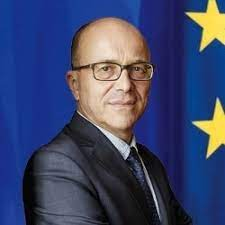
France, ALDE
A blank cheque
“I supported the reinstatement of the Russian delegation in our Assembly in 2019 because I consider the Russian Federation to be a great country. However, that was not a blank check: Russia must fulfil its commitments.”
Strengthening the authority of the European Court of Human Rights
“The European Court of Human Rights, whose authority we wished to strengthen yesterday afternoon, concluded that Mr Navalny’s conviction in the Yves Rocher case violated his right to a fair trial and the prohibition of any punishment without law. Despite this, the Russian Supreme Court upheld the verdict and the sentence imposed. I therefore strongly call for Mr Navalny’s conviction to be quashed and for him to be released immediately.”

Ukraine, EC/DA
Spitting in the face of the Court
“In the Navalny case everything is absolutely clear. They tried to poison him, this was done at Putin’s order by FSB agents. And when he miraculously survived and returned from medical treatment in Germany, he was arrested, he was thrown into prison and that was a spit in the face of the European Court of Human Rights.
Now we are here for the European Court of Human Rights to be able to work, to have judgements that are truly executed. I mean, what are we to do when a country spits in the face of the Court?”
Ashamed of what we are doing
“… the case of Navalny is really emblematic of the approach of the Putin regime to my country, to Moldova, to the Czech Republic, to many others. And yesterday, Putin spoke before the Federation Council of the Russian Federation and thousands of people went out onto the streets of Russia and we saw two Russias: the Russia of Putin and his entourage – just look at their faces, I mean I have nothing to comment – and another Russia, the Russia of a free and democratic civil society. That first Russia has been involved in geopolitical blackmail, but the other Russia is howling in pain under the batons of the forces of law and order.
The one Russia is people who live very comfortably, and the other are those who are imprisoned, who are suffering from poverty, from a lack of public services. The one Russia is the one that is oppressing Georgians, Moldovans, Ukrainians and others, the other Russia are those who simply want to live in peace. Which Russia do we want to protect and defend? We want to protect and defend the second Russia. Unfortunately, we are defending Putin’s Russia, and I am ashamed of that.”
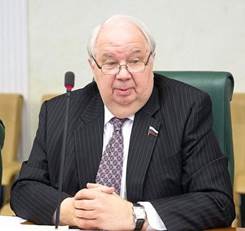
Russian Federation, former ambassador to the US
Serious economic crimes
“Unfortunately, our organisation has been drawn into this anti-Russian process. But we really need to look at the facts openly, clearly.
I mean, what is the Navalny case in the Russian Federation? There was an economic crime which was confirmed by a court. That is not the first economic crime with respect to which there was a court judgement against Mr Alexei Navalny, but this is really the first situation that I’ve seen where for such serious economic crimes, he was in fact sentenced to a very light sentence.
But he followed the rules for a certain period of time, the rules concerning parole, and therefore accepting the court sentence. But now there is this request for a sentence to be quashed. I mean should the decision of the supreme court of the Russian Federation be quashed? No. At the request of the European court of human rights, the supreme court reopened the proceedings and paid the financial compensation, but the reopened procedure resulted in a confirmation of the previous of sentence.
Now, insofar as the payment of a financial fine because there had been some procedural shortcomings the first time around, that was done. So, we have in fact fulfilled all of our commitments and obligations in a way that is fully in line with the European Convention of Human Rights and Russian domestic law. Now there is a second accusation; that we are not following the new decision of the European Court of Human Rights, namely the interim measure. But in the convention, there is not a single word about interim measures.”[7]
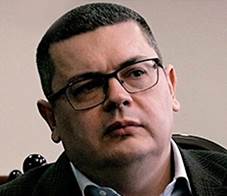
Ukraine, SOC
Live or die
“The life of Alexei Navalny hangs by a thread. Can we really save his life from imminent death? We all know perfectly well that now Alexei is at the hands of the same people who had tried to poison him. We also know who is a primary decision-maker, when it comes to a decision on whether Alexei will live or die. This person is Russian President Mr Putin. Let’s have no illusions that there isn’t any rule-of-law state in Russia. There is no rule of law in Russia. There Is only rule of Putin. It is up to him to decide Alexei’s fate, whether he will live or die.
Now the question. How to influence Mr Putin’s decision? How to save the life of Alexei Navalny? Can we say our resolution will help to release Mr Navalny? I strongly doubt it. The other day Mr Petr TOLSTOI had openly declared that Russia is not going to implement the PACE resolutions if Russia doesn’t like them under the pretext that these resolutions come into conflict with Russia’s legislation. Therefore, I’d like to put a question to the head of the Russian delegation. And my question is: Is Russia going to implement the decision of the European Court of Human Rights and the resolution of the PACE demanding the release of Alexei Navalny and to honestly investigate his poisoning? Please tell us openly.”

Norway, SOC
This is about illegal detention everywhere
“To me, this is not about Alexei Navalny. This case is about illegal detention everywhere. About putting opposition in prison. Freedom of speech and opposition rights. This case is about the value of rule of law everywhere. It’s about our common human rights and the very legitimacy of the Court of human rights.
Therefore, this is not a domestic matter for Russia. It is our common human values that are imprisoned. President Putin has said that nations who threatened Russian security will regret their deeds. He said that organizers of any provocations threatening the fundamental interests of our security will regret their deeds more than they have regretted anything in a long time.”
The rule of law is weakened everywhere
“In the hours following this speech, thousands of protesters fanned out in cities across the country to demand the release of Alexei Navalny. Hundreds were detained. The imprisoning of Navalny is, so to speak, a threat to the domestic security of Russia. And that alone should worry the Kremlin.
Mr President, Dear colleagues, I am speaking to you as a friend of Russia and as a friend of human rights. I’m speaking to you as a friend of Russian culture, of the Russian people. The court of Human Rights find no reason to arrest Navalny. We stand not only with Navalny, but illegal detention of protesters everywhere, and our common human rights everywhere. Because if they are relativized in one country and we don’t do anything, the values of freedom of speech and rule of law are weakened everywhere.”
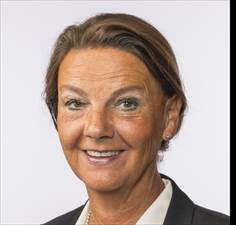
Norway, EPP/CD
“It is my sincere hope that our calls for freedom of expression, freedom of assembly and association for all citizens of Russia, and in all countries in the world and in member states of the Council of Europe, and in particular Mr Alexei Navalny, will have been heard. I truly hope that it will not be necessary to have this very debate again in June.
However, I am doubtful, and sad to close by stating that I think we will. This is not the last time Mr Alexei Navalny is at the top of our agenda.”

Ireland, ALDE
“Alexei Navalny’s biggest crime seems to be being the prominent face of political opposition to the Russian government, because he has effectively utilised the internet to communicate the strong political message. We know that he has millions of Russian followers on social media … My own country has condemned the imprisonment of Navalny on his return to Moscow. We have called for his immediate release and the release of those people detained during the protests. The fact that his detention happened immediately upon arrival raises very serious questions around the rule of law and the protection of fundamental rights in Russia.”
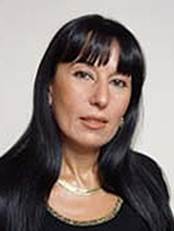
Armenia, EC/DA
Europa has turned to anti-Russianism
“Yes, of course I’m in favour of respect for human rights. I would like for everyone to have the right to express and freely exercise her or his political opinions, including Alexei Navalny. But I cannot understand Europe that has turned to anti-Russianism as a number one point on the agenda and is doing this via Navalny.”
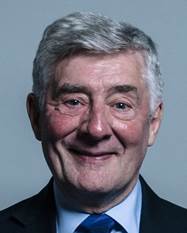
United Kingdom, SOC
A mockery of the judicial process
“This isn’t an anti-Russian report. In actual fact it’s pro-Russian. It’s pro- a particular Russian, which is Mr Alexei Navalny. But it’s actually about the way Russia operates as, one would hope, a country that respects the values and the norms and the institutions of this Council of Europe of ours.
The problem with the Navalny case is that, almost at every level, it makes a mockery not of the Russian people but of the Russian government and Russian institutions. Courts that operate not judicially but politically, as it brought Mr Alexei Navalny to trial mainly for the charge that he is an opponent of President Vladimir Putin. This isn’t a charge. This in the end means that it’s Russia and its government that’s on trial, not the Russian people and certainly not Mr Alexei Navalny.
Now within that context most of us were astonished that Mr Alexei Navalny was later on accused of failing to meet his bail conditions because he lay near death in a coma in a hospital in Germany. In almost any court in the world, even in the most repressive regimes, that kind of legitimate reason for non-adherence to bail conditions would have been accepted.
Again, this makes a mockery of the judicial process, I’ve got to say, in Russia. The allegation that the Russian courts are simply operating as a political arm of the Kremlin becomes a very real one.”
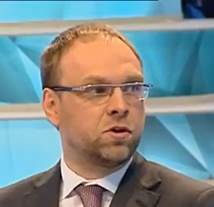
Ukraine, EPP/CD
No dialogue, no implementation …
“This Assembly welcomed the Russian Federation with no sanctions two years ago by the reasoning... there were two reasons. The first one, that we should create a dialogue and we should create an umbrella of ECHR over the Russian people.
So about the dialogue with the Russian Federation, do we have the dialogue with the Russian delegation? When we are talking about climate change or immigration in Europe yes, we have a dialogue. But when we start talking about the LGBT people in the North Caucasus, the illegal annexation of the territories of other member states like my Ukrainian Crimea, when we start talking about the violation of human rights or implementation of the ECHR judgments there is no discussion. There is no discussion.
And about the umbrella, I have a strict question, does Mr Navalny and thousands of his supporters enjoy the umbrella of the ECHR? The answer is totally clear. No, no. So what are we talking about? No dialogue, no implementation of decisions of the ECHR.”
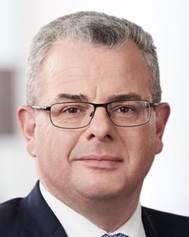
Germany, EPP/CD
“Along with several Members of the German Bundestag – from four parliamentary groups, in both government and opposition – we recently expressed our complete solidarity in a letter to Alexei Navalny. We consider his treatment to be irreconcilable with the European Convention for the Prevention of Torture and Inhuman or Degrading Treatment or Punishment. For this reason, we also demand, today, rapid and unrestricted access for the CPT to assess the detention conditions. With this resolution, we therefore call upon the Committee of Ministers to use all means at its disposal to also ensure application of the court’s ruling to the Navalny case.”
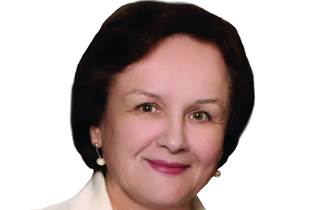
Lithuania, EPP/CD
A caricature of democracy
“Yesterday nearly 1,500 peaceful demonstrators have been arrested throughout Russia. They were calling for freedom for imprisoned opposition leader Alexei Navalny, whose health is deteriorating due to a serious illness and three weeks of hunger strike in prison.
The last time such demonstrations took place in Russia in January and February, right after Navalny was arrested, and then more than 11,000 people were detained. Recently Russian prosecutors have requested that Navalny’s network of regional offices and his Anti-Corruption Foundation be added to a list of ‘terrorist and extremist’ groups, clearing the way of its members to be jailed.
Navalny’s case, his arrest and imprisonment is only one of many puzzles of a huge picture, a caricature of democracy in Russia. Many colleagues have already mentioned the decision of the European Court of Human Rights on Navalny, decision ignored by the Russian Federation. It is obvious: Russia is ignoring its own commitments as the CoE Member State. Those commitments are obligatory, and all Member States shall stick to them.”
So what is to be done?
Before the debate on Navalny on 19 April Michael Roth, the German minister of State for Europe, addressed PACE. Roth explained that “The issues of unimplemented judgments are regularly discussed in the Committee of Ministers, and the Committee of Ministers cannot continue to avoid them. We are continuing to pursue this issue vigorously and also expect it to be pursued accordingly.” Then Roth warned:
“But we have to keep all our options open. There is Article 46, there are other possibilities. Once again, if judgments are not implemented on a permanent and consistent basis, then the legitimacy of the Council of Europe is called into question in its entirety. That is why we need a corresponding commitment here, and it must be clear to every member state what the consequences will be …
I say again: we are not being lenient. All options are on the table. But it is important that we leave no stone unturned to convince even states that are currently refusing to rejoin to play a constructive role and, as I said, to meet these minimum requirements of membership of the Council of Europe. I am afraid that the instruments which the Council of Europe also has at its disposal will have to remain on the table. That must also be clear to any member country that breaks the treaty agreements.”
The Assembly’s resolution was adopted with 105 votes in favour and 26 against.[9] It called for the immediate release of Alexei Navalny. It urged the Committee of Ministers “to use all the tools at its disposal, including those under article 46 of the European Convention on Human Rights.”[10]
Before we turn to “all tools at the disposal of the Committee of Ministers” let us examine “Article 46”. This article of the Convention on the Binding force and execution of judgments consists of five paragraphs:
1. The High Contracting Parties undertake to abide by the final judgment of the Court in any case to which they are parties.
(This is the core of the Convention system.)
2. The final judgment of the Court shall be transmitted to the Committee of Ministers, which shall supervise its execution.
(The Committee of Ministers, representing 47 member states, is responsible for ensuring that judgements are executed.)
3. If the Committee of Ministers considers that the supervision of the execution of a final judgment is hindered by a problem of interpretation of the judgment, it may refer the matter to the Court for a ruling on the question of interpretation. A referral decision shall require a majority vote of two thirds of the representatives entitled to sit on the Committee.
(Note: there is no “problem of interpretation” of the original judgement of the Strasbourg Court; it was clear, as was its order in February 2021 to release Navalny immediately.)
4. If the Committee of Ministers considers that a High Contracting Party refuses to abide by a final judgment in a case to which it is a party, it may, after serving formal notice on that Party and by decision adopted by a majority vote of two thirds of the representatives entitled to sit on the Committee, refer to the Court the question whether that Party has failed to fulfil its obligation under paragraph 1.
(Note: there is no need to ask the Strasbourg Court “whether Russia has failed to fulfil its obligation”; it is obvious and clear to anyone that it has not.)
5. If the Court finds a violation of paragraph 1, it shall refer the case to the Committee of Ministers for consideration of the measures to be taken. If the Court finds no violation of paragraph 1, it shall refer the case to the Committee of Ministers, which shall close its examination of the case.
(In case the Committee of Ministers would ask the Strasbourg Court whether, by keeping Navalny in jail, Russia is failing to fulfil its obligation the answer would have to be “yes”. And then the case simply returns to the Committee of Ministers.)
In short, the Article 46(4) procedure is circular:
The Committee of Ministers refers a case to the Court to confirm the non-implementation it has already established.
The Court then sends it back to the Committee of Ministers “for consideration of the measures to be taken”.
The Committee of Ministers is no further than it was before, but a lot of time has been wasted: time that Navalny does not have.
Article 46(4) has been used only once in the history of the Council of Europe: in December 2017, in respect of the refusal of the Azerbaijani government to release the opposition politician Ilgar Mammadov, despite the Strasbourg Court concluding that his arrest had been political and violated his right to liberty. Lessons can be learned from this only time the procedure has been used.
The first lesson is that the Committee of Ministers has devised an elaborate process for delaying the triggering of Article 46(4): A first decision is required. The case must then appear on the agenda of multiple human rights meetings in a row; meetings which only take place four times a year. Then there have been many interim resolutions. The entire process can easily take two or three years. The decision to trigger the Article 46(4) procedure for Ilgar Mammadov came two and half years, four interim resolutions and over ten Committee of Ministers’ decisions after the original ruling by the Strasbourg Court.
Look closely at the case of Ilgar Mammadov: On the face of it, it looks like the Article 46 procedure worked, as Ilgar Mammadov was released before the completion of his sentence. But his release came five and half years after his arrest (in February 2013), four and half years after his conviction, just under four years after the ECHR ruling in his case and two and half years after the procedure was triggered. His conviction was only overturned in April 2020. Ilgar Mammadov was one of a group of ten Azeri activists, lawyers and politicians detained between 2013 and 2016 in proceedings found by the Court to have been unfair and politically motivated. All ten have since been released, some by presidential pardon. Only two, including Ilgar Mammadov, have had their convictions quashed.
It is a process designed to drag on long enough for the reason behind the violation to lapse, making it easier for the offending state to ultimately comply. The key point is that these prosecutions took place in the context of a much broader crackdown on protests, independent NGOs, free media and opposition political parties, prompted by a wave of protests in 2011. By 2018, however, Azerbaijan had already secured everything it wanted from its crackdown. Its NGO scene has been destroyed. Opposition parties are in disarray. There is no independent media operating from within Azerbaijan. Most prominent activists are in exile. A prompt response in 2013 and 2014 might have made a difference. By the time everyone was finally released it was too late. Formally, the judgement was implemented, but in in practice the purpose of the Convention was utterly trampled on.
It is therefore obvious that the Article 46(4) procedure offers no encouragement to Navalny. His current sentence has under three years to run. This is about as long as the Article 46(4) procedure can be expected to take. In Navalny’s case, the Article 46(4) procedure would leave Russia, not the Committee of Ministers, dictating the terms of its compliance. This is unacceptable when time is precious, as the Court has already noted. When ordering Navalny’s release in February 2021 the Strasbourg Court did so in light of:
“the nature and extent of risk to the applicant’s life, demonstrated prima facie for the purposes of applying the interim measure, and seen in the light of the overall circumstances of the applicant’s current detention.”[11]
The conclusion is simple: Article 46(4) is not the right tool to ensure the implementation of the judgements of the Strasbourg court and to address the severe crisis of credibility that Russian defiance has created for the whole Council of Europe. It is but an ineffective, possibly fatal, distraction.
Last week, speaker after speaker took to the floor of PACE to articulate the right concerns, with passion and with arguments, appealing to morality, politics and international human rights law, pointing to the dangers that Navalny faces personally, and to those the Convention system faces systemically, if he is not released immediately. And most made clear that every possible response should be on the table.
But what is left, if Article 46(4) does not solve, but prolongs, the failure of implementation? If states are serious about ensuring compliance and defending the integrity of the Convention there is only one credible course of action left: a warning today that unless Navalny is released within weeks, not months, they will move to a vote on the suspension of Russia’s voting rights under Article 8 of the Council of Europe’s statute.
Article 3 of the Statute of the Council of Europe refers to the fundamental freedoms and the key notion of sincere collaboration in their realisation:
“Every member of the Council of Europe must accept the principles of the rule of law and of the enjoyment by all persons within its jurisdiction of human rights and fundamental freedoms, and collaborate sincerely and effectively in the realisation of the aim of the Council as specified in Chapter I.”
Russia’s leaders have clearly shown that they do not collaborate sincerely and effectively to change this.
Article 8 of the Statute spells out the consequences of continuous serious violation of these principles, and the failure to collaborate:
“Any member of the Council of Europe which has seriously violated Article 3 may be suspended from its rights of representation and requested by the Committee of Ministers to withdraw under Article 7. If such member does not comply with this request, the Committee may decide that it has ceased to be a member of the Council as from such date as the Committee may determine.”
In its implementation of judgments, as well as in its current treatment of Alexey Navalny, the Russian state has continuously violated Article 3. The Parliamentary Assembly cannot oblige a vote in the Committee of Ministers. However, its members can and should be urging their governments to take this course of action.
It is to this that the MPs who expressed their concerns so eloquently should turn next. And it is to the Committee of Ministers, and to its German chair, that the demand for effective action needs to be directed.
- ESI Newsletter, Navalny’s life – the choice in Strasbourg (20 April 2021)
- ESI Memo: Navalny and the Council of Europe – Urgent next steps (18 April 2021)
[1] PACE, “The arrest and detention of Alexei Navalny in January 2021”, Doc. 15270, 19 April 2021.
[2] The Alliance of Liberals and Democrats for Europe.
[3] Unified European Left Group.
[4] Socialists, Democrats & Greens Group.
[5] Group of the European People’s Party.
[6] European Conservatives Group & Democratic Alliance.
[7] Interim measures are regulated in the Rules of the Court.
[8] Photo credit: By Peter Mydske/Stortinget, CC BY-SA 4.0.
[9] Vote on the resolution, 22 April 2021.
[10] PACE, “Recommendation 2202 (2021): The arrest and detention of Alexei Navalny in January 2021”, adopted 22 April 2021.
[11] European Court of Human Rights, “Press release: The Court grants an interim measure in favour of Aleksey Navalny and asks the Government of Russia to release him”, 17 February 2021.
